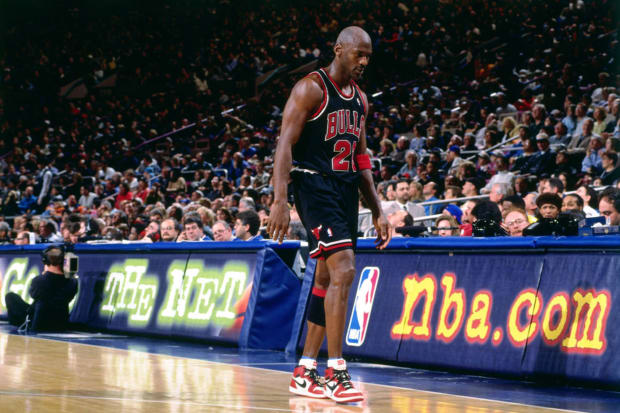How The New York Knicks Almost Stole Michael Jordan From The Bulls

After winning six Championships in a single decade, Michael Jeffrey Jordan helped elevate the Chicago Bulls to one of the biggest and most widely known sports franchises on the planet.
While he did play two seasons with the Wizards in the final stretch of his career, it's hard to imagine the basketball icon wearing anything but a Bulls jersey.
Interestingly enough, however, Jordan's departure from the Bulls almost became a reality in 1996, following Jordan's fourth Championship victory (and his first since the passing of his father).
(via ESPN)
Behind the scenes, Chicago had reason to worry. Not only would Jordan hit the open market for the first time, but both coach Phil Jackson and Dennis Rodman had uncertain futures with the Bulls, too.
With Jordan hitting the free-agent market, Chicago was feeling the pressure. Meanwhile, in New York, the Knicks were intent on making some changes, with dreams of catching up to the lure and glamor of the dominant Bulls.
By March 8, 1996, the Knicks -- having gone 4-9 since the All-Star break -- fired Don Nelson, Riley's successor for 59 games during the 1995-96 campaign, and tabbed assistant coach Jeff Van Gundy to guide the flawed roster for the rest of the season. A sea change was inevitable.
Leading up to the '96 free agency period, the Knicks had a plan that to lure in MJ that may or may not have included an offer for Mike to become the face of an enormous hotel chain.
Smith, who wrote the New York Times best seller "The Jordan Rules," reported in the Chicago Tribune in 1997 -- accompanied by an artist's rendering of a No. 23 Knicks jersey -- that ITT Corporation, which owned both the Knicks and Sheraton hotels, was the vessel for potential unprecedented action. Smith said ITT was targeted as the source of $15 million to lure Jordan, who could have been the face of a national hotel chain.
Unfortunately, that master plan would have been an illegal circumvention of the salary cap. The Knicks couldn't beat out Chicago's $30.14 million offer in the end, and it didn't take long for Jordan to ink his return to the Windy City.
After Falk (Jordan's agent) got off the Phone with Reinsdorf (Bulls team owner), with the deal not yet completed, and after he spoke with Checketts (President of Madison Square Garden), he spoke a second time with Reinsdorf, who now knew what it would take to keep the game's best player. He knew the offer would have to start with a "3." And so it was then that the deal, essentially, was done; free agency had begun on the evening of July 11, and Jordan and the Bulls agreed to a one-year, $30.14 million contract on July 12. Regardless of whether Reinsdorf was aware of any potential ancillary earnings that the Knicks might have been able to provide, Jordan got the largest single-season contract in the history of American team sports.
The rest is pretty much history, but it is worth noting that MJ himself would reveal years later that the Knickerbockers were a pretty close second on his preferred destination list.
In Spike Lee's 1997 basketball memoir "Best Seat in the House," Jordan made that clear. "New York was right downstairs. The Bulls -- all they had to do was mess up," Jordan said in the book, telling Lee in hindsight that there was a chance he could have played for the Knicks if the circumstances were right -- namely if coach Phil Jackson came along for the ride. (Through representatives, Jordan and Reinsdorf declined to be interviewed for this story. Jackson did not respond to a request for an interview.) But it wasn't quite that simple. Creating a market for Jordan, one in which leaving Chicago was worth it, would take unprecedented action.
So, back during MJ's transition to the NBA, his original contract with Nike was almost called off because of the conditions the company included in his first contract.
For the Knicks, had the NBA rulebook not held them back in the 90s, it's certainly possible that they would have been successful in their efforts to sign the best player in the history of the sport.
Moral of the story? Sometimes, it's one moment, one singular decision that can change the course of history.
In the end, though, the Bulls did get to keep their guy, leaving the Knickerbockers to go back to the drawing board.
And while neither team has been very good since that moment, it's certainly interesting to think how much things would be different today had Jordan decided to make a different choice that day.
Post a Comment
0 Comments